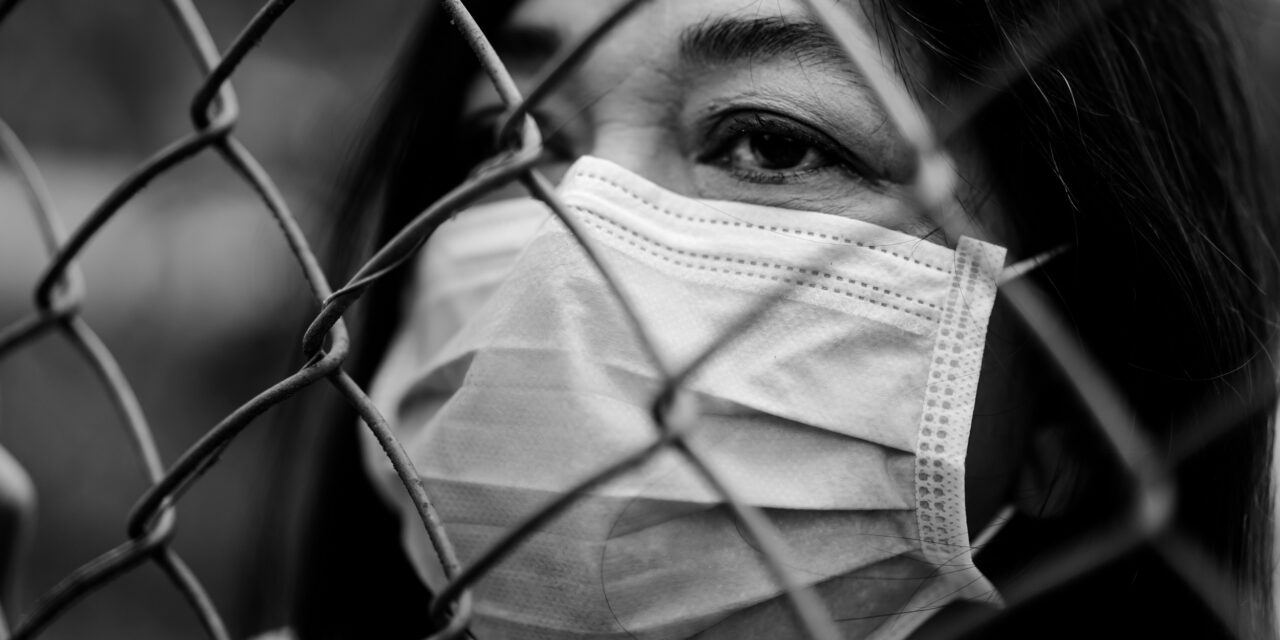In a split decision, the Ninth Circuit Court of Appeals on October 20 lifted a lower court’s protections for medically vulnerable people locked up in U.S. Immigration and Customs Enforcement (ICE) detention centers during the COVID-19 pandemic. The protections included requiring that ICE adhere to public health and safety protocols to reduce the risk of infection in detention centers, and considerations for release from ICE custody for people at higher risk for severe illness.
The case, Fraihat v. ICE, was filed against ICE in the Spring of 2020 in response to accusations of the agency’s “deliberate indifference” to people in its custody with medical needs or health risks related to COVID-19.
During the early months of the pandemic when few protections from COVID existed, a federal court in California ordered that ICE develop:
- Protocols for protecting all people in ICE custody from the pandemic, consistent with Centers for Disease Control and Prevention (CDC) guidelines.
- A process for reviewing custody of everyone in ICE detention and considering their release. For individuals with a COVID-19 risk factor, the court injunction required ICE to weigh that heavily in favor of release.
According to ICE’s data, since February 2020, over 29,000 people have tested positive while in ICE detention. The agency has also reported nine deaths from COVID-19 while in ICE custody, though this data is contested by other organizations who consider this to likely be an undercount.
From February through early April 2020, ICE issued several sets of memos and guidance to address the spread of COVID-19 in detention centers. This included a “Docket Review” process, which instructed ICE field offices to review the cases of detained people for release while the Fraihat litigation was ongoing.
However, by April 20 there were over 30,000 people in ICE custody and many medically vulnerable people remained locked up despite being at severe risk of infection. As a result, the District Court of the Central District of California determined that it was necessary to order ICE to improve its COVID-19 safety practices. That injunction remained in place until Wednesday, when the panel of judges at the Ninth Circuit Court of Appeals struck down the protections.
While the Fraihat injunction is no longer in effect, much of the court language that advocates have relied on to request their clients’ release from detention has since been incorporated into mandatory guidance that local ICE field offices are required to follow. The agency’s COVID-19 Pandemic Response Requirements were updated most recently on October 19, 2021 and remain in effect.
Because this guidance incorporates the most important aspects of the Fraihat injunction—including guidance that medical risk factors should weigh heavily in favor of release and requiring that detention centers create cleaning and social distancing protocols—it is unclear what effect the Ninth Circuit’s decision will have on people in detention.
Significantly, while the government’s appeal of the 2020 Fraihat injunction was filed under the previous administration, the Biden administration had the opportunity to withdraw the appeal and allow the injunction to stand. However, they did not. Instead, they actively pursued it, filing a letter with the court in February 2021 stating the Biden administration’s belief that a nation-wide injunction protecting all people in ICE detention was overly broad.
The Fraihat litigation is an important element in the ongoing efforts to provide protection for people in ICE custody, and emphasizing the danger that prolonged detention presents during a pandemic. The decision from the Ninth Circuit is a blow to those efforts. It remains to be seen what the Biden administration does next.


